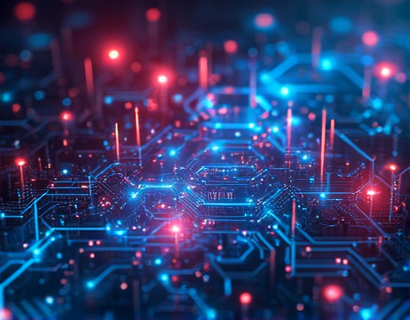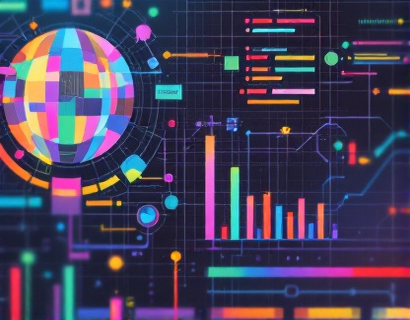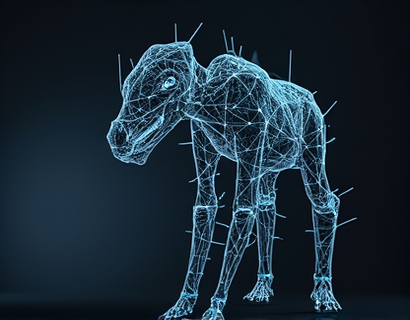Decentralized Authentication: Empowering Businesses with Advanced Identity Management for Enhanced Security and Efficiency
In the digital age, the importance of robust identity management cannot be overstated. As businesses increasingly rely on digital platforms to conduct operations, the need for secure and efficient authentication mechanisms has become paramount. Decentralized authentication solutions are emerging as a transformative force, offering advanced identity management that not only enhances security but also streamlines user experiences. This shift is crucial for modern enterprises aiming to achieve operational excellence and maintain a competitive edge.
Traditional authentication methods, such as centralized databases and single sign-on (SSO) systems, have inherent vulnerabilities. These systems often become prime targets for cyberattacks, leading to potential data breaches and loss of sensitive information. Decentralized authentication, on the other hand, distributes control and storage across a network of nodes, eliminating single points of failure and significantly reducing the risk of large-scale security incidents.
One of the key benefits of decentralized authentication is its ability to provide seamless user experiences while maintaining stringent security protocols. By leveraging blockchain technology and distributed ledgers, these solutions ensure that user identities are verified and managed in a transparent and immutable manner. This approach not only enhances trust but also simplifies the authentication process for users, reducing friction and improving overall satisfaction.
Decentralized authentication services and software are designed to empower businesses of all sizes to manage identities securely and efficiently. These solutions offer a range of features that cater to the diverse needs of modern organizations. For instance, they can integrate with existing systems and workflows, ensuring a smooth transition without disrupting current operations. Additionally, they provide granular access control, allowing businesses to define precise permissions and roles for different users and groups.
The implementation of decentralized authentication can lead to significant improvements in operational efficiency. By automating identity verification and access management processes, businesses can reduce the administrative burden associated with manual checks and updates. This automation not only saves time but also minimizes the risk of human error, ensuring that access controls are consistently enforced.
Enhanced security is perhaps the most compelling advantage of decentralized authentication. Traditional centralized systems are susceptible to various attacks, including phishing, man-in-the-middle attacks, and insider threats. Decentralized solutions mitigate these risks by distributing authentication data across multiple nodes, making it extremely difficult for attackers to compromise the entire system. Furthermore, the use of cryptographic techniques ensures that user data remains encrypted and secure, even if a node is compromised.
Another critical aspect of decentralized authentication is its scalability. As businesses grow and evolve, their identity management needs change accordingly. Decentralized systems are inherently scalable, capable of handling an increasing number of users and transactions without degradation in performance. This flexibility is essential for businesses operating in dynamic environments where rapid scaling is often necessary.
Decentralized authentication also promotes compliance with regulatory requirements. With the implementation of stringent data protection laws such as the General Data Protection Regulation (GDPR) and the California Consumer Privacy Act (CCPA), businesses must ensure that they handle user data responsibly. Decentralized solutions provide built-in compliance features, such as data minimization and user consent management, helping organizations meet these regulatory standards effortlessly.
The adoption of decentralized authentication can also drive innovation within organizations. By freeing up IT resources from managing complex authentication infrastructures, businesses can focus on core activities and explore new opportunities. For example, the insights gained from decentralized identity management can inform product development and enhance customer experiences through personalized services.
Moreover, decentralized authentication fosters a culture of trust and transparency. Users are increasingly aware of how their data is used and stored, and they demand greater control over their digital identities. Decentralized solutions empower users by giving them ownership of their identity data, allowing them to manage and share it as they see fit. This shift not only builds user trust but also enhances the reputation of businesses that prioritize user privacy and security.
From a technical standpoint, decentralized authentication leverages several cutting-edge technologies. Blockchain, at the core of these solutions, provides a decentralized and tamper-proof ledger for storing and verifying identity data. Smart contracts, self-executing contracts with the terms directly written into code, automate the authentication process, ensuring consistency and reliability. Additionally, zero-knowledge proofs and homomorphic encryption enable secure verification of identity attributes without revealing sensitive information, further enhancing privacy.
The integration of decentralized authentication with other emerging technologies, such as artificial intelligence and the Internet of Things (IoT), opens up new possibilities for secure and efficient identity management. For instance, AI can be used to detect and respond to anomalous behavior in real-time, while IoT devices can seamlessly authenticate and authorize access based on decentralized credentials. This convergence of technologies creates a robust and adaptive security framework that can evolve with the changing landscape of digital threats.
Despite its numerous advantages, the adoption of decentralized authentication is not without challenges. One of the primary hurdles is the need for widespread education and awareness. Many businesses and users are still unfamiliar with the concepts and benefits of decentralized systems. Educational initiatives and case studies demonstrating successful implementations can help bridge this knowledge gap and encourage broader adoption.
Another challenge is the interoperability of decentralized authentication solutions. As the market is still evolving, there is a lack of standardized protocols and frameworks. This fragmentation can hinder seamless integration across different platforms and systems. Industry collaboration and the development of open standards are essential to overcome this barrier and create a cohesive ecosystem.
From a cost perspective, the initial investment in decentralized authentication infrastructure can be significant. However, the long-term benefits in terms of reduced security risks, lower administrative costs, and improved operational efficiency often outweigh these upfront expenses. Businesses should conduct a thorough cost-benefit analysis to understand the financial implications and potential returns on investment.
In conclusion, decentralized authentication represents a paradigm shift in how businesses manage identities and secure their digital assets. By offering enhanced security, improved efficiency, and greater user control, these solutions are well-positioned to become a cornerstone of modern identity management. As the technology matures and adoption increases, organizations that embrace decentralized authentication will be better equipped to navigate the complexities of the digital world and achieve their strategic objectives.











































